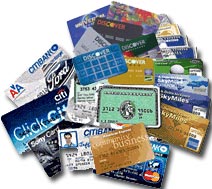“What about my credit score?“
I’ve been asked this question a lot recently with all the incredible credit card offers out there. First, if you’re young and just getting started, your credit is a huge asset and you don’t want to mess with just to earn some miles. That being said, if you’re an adult who has used credit responsibly for years, does consistently applying for cards really hurt your score? Each person is different but, for the most part, it can actually help increase your score. Credit is calculated like this:
1. Payment history, 35% – Late bill payments will crush your score more than anything
2. Credit utilization, 30% – This is what you owe vs. your available credit. That’s why it’s great to have cards with no annual fees you can keep open forever. Other things that help are: (1)getting increases in credit limits and, (2)of course, paying off balances every month. If you normally carry balances each month, you shouldn’t even get involved in this game.
3. Length of credit history, 15%– This is another reason to love those no annual fee cards and hold on to them forever. As your credit history gets longer, your score gets better. These first 3 items make up the majority of your credit score (80%). The other 20% comes from:
4. Types of credit used, 10%– Having different types of credit (car loan, credit card, student loan, mortgage, etc.) will help your credit score.
5. Recent searches for credit, 10% – Credit inquiries stay on your report for two years. Getting denied doesn’t do a thing to your score. But, yes, applying for a card, car loan, or mortgage are things that will ding your score – but, again, we’re talking about minor dings here if your score is strong. And you do get those points back. Not to mention, if you’re approved for the card, something very positive happens…your available credit goes up (see item 2).
So to answer the original question, how many cards should you apply for? Some mileage hounds apply for 2 cards per quarter, some limit it to 1 per month. It varies. This is what many credit experts recommend – every 91 days, do a new “churn.” Meaning, apply for a new batch of cards 91 days after the last batch of applications. Do them all the same day. How many you apply for in the batch is up to you, and depends on how high your credit score is. If it’s average, 2 to 5 is usually a good number. If your score is high, even 10 isn’t unheard of. If you’re buying a home, it’s a good idea to stop applying for cards 6 months before you start your home loan paperwork. And if you choose not to do the 91-day churning schedule, it’s smart to alternate applications among banks (example: Barclays’ US Air card, then Bank Of America’s Virgin card, then Citibank’s American Airlines card, then Chase’s British Airways card, etc).
Chase is by far the bank with the most mileage cards (British, Continental, United, Hyatt, Southwest, and many more). It’s a good rule of thumb to wait a few months between Chase card applications (at least 3, and you’re definitely safe after 6). At the very least, absolutely wait a month with Chase. If you do push it and only wait those 30 days, it can still work in your favor. Lets say you get denied. You should immediately call Chase’s reconsideration line. Tell them how badly you want the card. They’ll let you lower credit limits on other cards or exchange existing cards to get you approved. If it’s a no-go and you still really want the card, just wait 3 months and apply again. For Citibank, try to wait 3 to 6 months between applications.
Finally, after you’ve gotten a few cards approved, you’re going to have a bunch of annual fees to keep track of. It’s smart to keep a spreadsheet that tracks when annual fees will be charged. This way, you have the option of closing accounts the month before the fees are charged. When you call, they usually waive the fee or offer you a no-fee alternative. I have a few cards that give 5,000 to 10,000 miles on every anniversary date. To me, a card like that is worth paying the fee on. You’re essentially buying miles at a great price once a year. The key is to just stay organized and you won’t be paying many fees.


